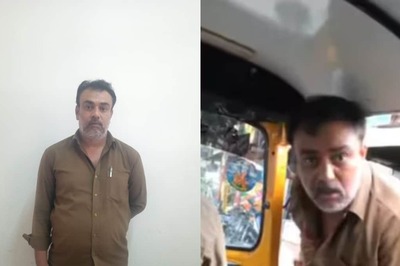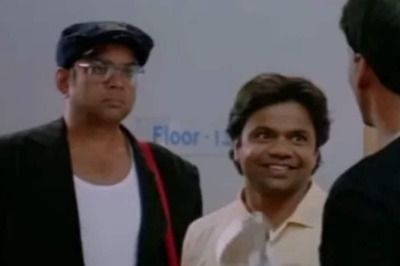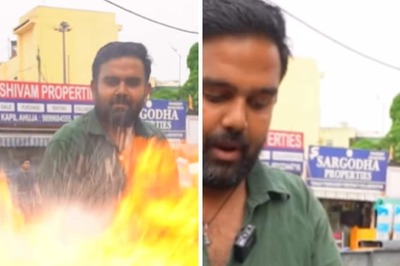
views
The Supreme Court on Monday released its reasons, justifying reference of Sabarimala temple entry matter to a nine-judge bench so as to examine matters relating to entry of women in places of worship of various religions, including mosques and fire temples.
Holding that no matter is beyond the jurisdiction of the apex court, the nine-judge bench, headed by Chief Justice SA Bobde, noted that the reference was required to 'do a complete justice' in a pending matter, namely Sabarimala.
Elaborating on its order of February 10, the bench, apart from pointing to its powers under Article 142, also shot down the objection that the reference to a larger bench could not have been made in a pending review petition, without allowing the review petition.
"A reference of questions of law can be made in any pending proceeding before this Court, including the instant review proceedings, to meet the ends of justice," ruled the nine-judge bench.
It held the Supreme Court's hands were not tied down by its 2013 rules, which laid down that reference to a larger bench can be made in any cause or appeal as well as in any ‘other proceeding’.
"The term ‘proceeding’ is a very comprehensive term and generally speaking, means a prescribed course of action for enforcing a legal right. It is a term giving the widest freedom to a Court of law so that it may do justice to the parties in the case," noted the bench.
According to a wide interpretation to the rule, the top court added that there cannot be any doubt that the pending review petition falls within the purview of the expression “other proceeding” and hence, the reference by a five-judge bench to a larger one was not vitiated by lack of jurisdiction.
It further said that unlike a court of limited jurisdiction, the superior court of record is entitled to determine for itself questions about its own jurisdiction and hence the Supreme Court will have the jurisdiction to decide its own realm of adjudication.
The bench also rejected the objection that the reference could not have been made in cases which were not before the five-judge bench, and also as to this reference cannot be decided without facts of particular cases.
The 29-page order relied upon several previous reference cases, starting from the one relating to right of minority institution to administer itself, to the latest one on the right to privacy, to maintain that a reference can decide just the pure questions of law, without adjudicating upon the specific facts of a case.
"This court has acted well within its power in making the reference," said the bench.
Besides the CJI, the nine-judge bench includes Justices R Banumathi, Ashok Bhushan, L Nageswara Rao, Mohan M Shantanagoudar, SA Nazeer, R Subhash Reddy, BR Gavai and Surya Kant.
The Supreme Court, by 4:1, had in 2018 allowed women of all ages entry into Kerala's Sabarimala temple but while deciding the review petitions against this decision, the Constitution Bench decided to refer not just this but various matters relating to entry of women in mosques, Parsi temples etc to a larger bench. This time, the reference was made by a 3:2 decision.
A nine-judge bench was set up by CJI Bobde and the first question that popped up before it was the validity of the reference order.
On February 10, the larger bench decided to go ahead with the issues and framed seven questions for adjudication while staring the detailed reasons would be given later.
A bunch of applications were also filed before the apex court, pointing out since there was no stay on the 2018 order, women must be given security if they want to enter sanctum sanctorum of Sabarimala. The nine-judge bench had, however, refrained from passing any order while suggesting they should wait till the final outcome of the reference.




















Comments
0 comment